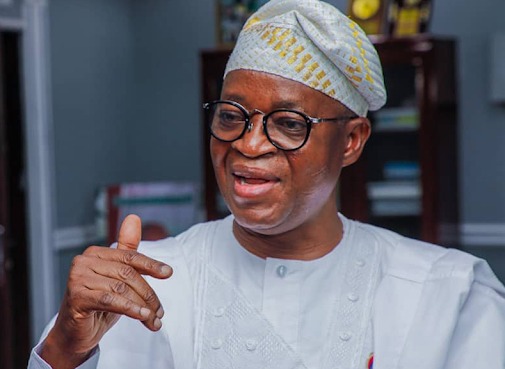The Minister of Marine and Blue Economy, Adegboyega Oyetola, has stressed that adequate financing is central to turning Nigeria’s blue economy ambitions into tangible results.
Oyetola made this known on Saturday in a statement released by his Special Adviser on Media and Communications, Dr. Bolaji Akinola, following the ministry’s 3rd Quarter Citizens’ and Stakeholders’ Engagement.
According to the statement obtained by The News Chronicle, Oyetola cautioned that without sustainable funding, Nigeria risks failing to harness the full potential of its vast marine resources.
Addressing stakeholders from industry, government, and investment circles, the minister said the event’s theme, “From Policy to Impact: Finance is Key,” was both strategic and urgent.
He recalled that in May 2025, the Federal Executive Council approved the country’s first-ever National Policy on Marine and Blue Economy, which provides a clear framework for growth across shipping, aquaculture, marine tourism, coastal infrastructure, renewable energy, and ocean research.
“Vision without financing remains a dream. Government cannot solely modernise ports, sustain maritime security, expand aquaculture or build climate-resilient infrastructure,” Oyetola said.
He called for stronger partnerships with the private sector, innovative financing models, and international collaboration to drive implementation.
Highlighting the ministry’s performance, Oyetola noted its 96 per cent rating by the Central Results Delivery Coordination Unit earlier in 2025, and its recognition in 2024 by the Presidential Enabling Business Environment Council as the best-performing ministry.
“These achievements show government capacity to deliver, but scaling requires unlocking far greater resources,” he added.
He cited the financing of the Deep Blue Project—which has kept Gulf of Guinea waters piracy-free—as proof that investments deliver results. He also pointed to Lagos port upgrades designed to cut vessel turnaround time, attract bigger ships, and generate thousands of jobs, with similar initiatives planned nationwide.
Consultations with fisheries associations, he explained, are advancing aquaculture expansion, fish harbour development, and satellite monitoring systems for sustainable stock management. According to him, these measures have already boosted non-oil exports by nearly 20 per cent in the first half of the year, reinforcing Nigeria’s diversification efforts.
“The marine and blue economy is a shared prosperity project, not a government-only task, with finance as the lever for long-term investment. Policy clarity, proven results and capacity are already in place. What Nigeria now needs is scale, and for that, finance is indispensable,” he said.
“With innovative financing and collective commitment, Nigeria can lead Africa’s marine and blue economy, generating prosperity, jobs and resilience for its citizens,” Oyetola added.
Also speaking at the forum, the Permanent Secretary of the ministry, Olufemi Oloruntola, described government funding as critical seed investment that can attract private sector participation and align growth with national priorities.
He, however, warned that current budget allocations fall short of the capital requirements of ports, maritime security, fisheries, tourism, and renewable energy projects.
Oloruntola suggested the establishment of a dedicated Blue Economy Fund, promotion of blue bonds, green finance, stronger public–private partnerships, and support from multilateral institutions. He outlined opportunities in seaport upgrades, inland waterways, local shipping lines, aquaculture, cruise terminals, eco-tourism, marine biotechnology, and renewable energy.
With the right funding strategy, he said, Nigeria could tap into an estimated $1.5 trillion global blue economy market by 2030, creating millions of jobs and ensuring sustainable livelihoods for coastal populations.
In his presentation, Nigerian Exchange Ltd. Chief Executive, Jude Chiemeka, underscored the role of the capital market in raising long-term funding for blue economy projects. He pointed to sustainability-linked loans, blended finance, and impact investments as critical to strengthening resilience in the sector.
The engagement attracted wide participation from maritime associations, financial institutions, civil society, and interest groups, reflecting the blue economy’s central role in Nigeria’s economic diversification drive.



